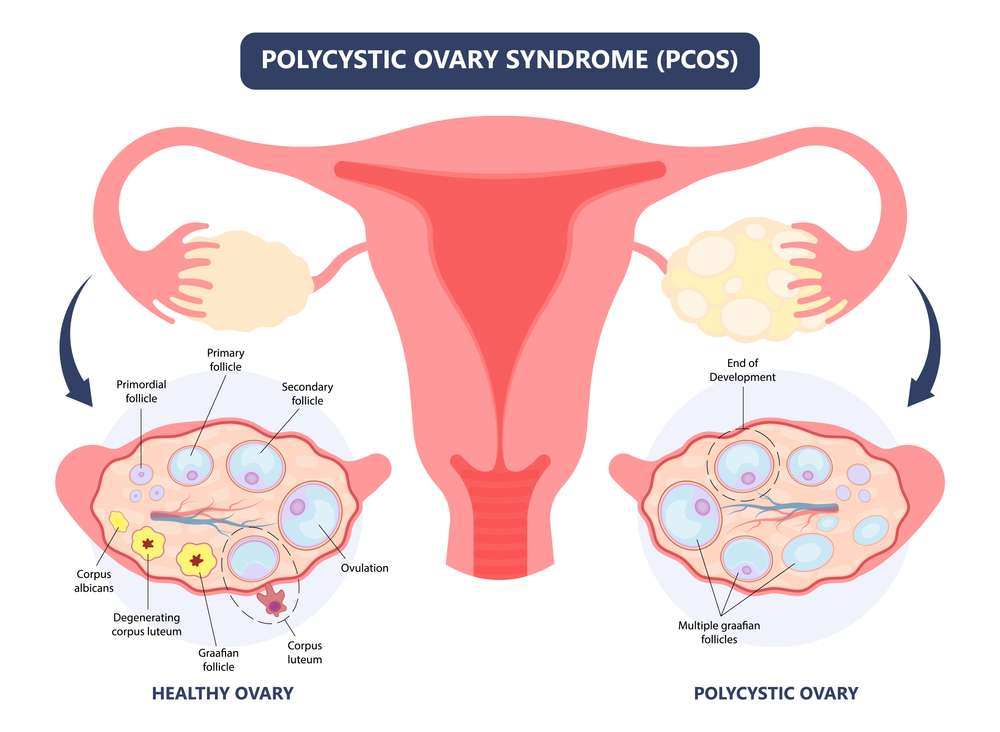Cryptic pregnancy
What is cryptic pregnancy?
Cryptic pregnancy is a alos called stealth pregnancy where a pregnant women has no idea they are pregnant . Sometimes a women’s won’t even know they are pregnant until labor starts. Most womn’s becomes aware of their pregnancy between four and twelve week of their pregnancy. This can be the case if they are exhibiting pregnancy symptoms or if their period were missing. A positive pregnancy test can confirm being pregnant. Nothing makes a women think they are pregnant when they have a mysterious pregnancy.
Define Cryptic Pregnancy?
A cryptic pregnancy occurs when a pregnant woman is unaware that she is pregnant. In certain situations, a woman may not realize she is pregnant until labor begins. Most women become pregnant between four and twelve weeks of pregnancy.
Who is affected by cryptic pregnancy?
A mysterious pregnancy can happen to anybody. You might be more affected if you have:
Already gave birth:
It takes many months for your period to start coming back, and if you are nursing(breastfeeding), you might not ovulate. This may some people to believe they are entirely protected from getting pregnant. When you will first ovulate while breastfeeding and become fertile once more is impossible to predict.
PCOS(polycystic Ovarian Syndrome):
Unpredictable periods are a symptoms of PCOS. They are become used to skipping periods, so if they do so, they might fail to recognise a pregnancy.
Birth control pills:
Those who use pills to control not concieving belive thay are protected to pregnancy. Even when used properly, there is a slight possibility to failure.
Perimanopause:
People in their 40s may think they are too old for becoming pregnant or misunderstands the symptoms of pregnancy with signs of ovulate.
- After giving birth, you could become pregnant again before your periods come back. Sometimes you may think your symptoms are just your body responding to its afterbirth state when you are actually pregnant again. This is due to breastfeeding and hormonal factors might your body to delay ovulation and your period for several months after a birth.
- Your period may stop for months at a moment if you have low body fat and participate in physical activities.
Causes of cryptic pregnancies:
- It’s possibly that a home pregnancy test may gave a wrong report.
- who don’t recognize symptoms of pregnancy
- If no signs of pregnancy
- unaware of symptoms that they are pregnant
Signs of cryptic pregnancy:
- Missed period
- Weight gain
- Spotting or light bleeding
- fatigue
- Abdominal pain
Duration of cryptic pregnancy:
Around 20 weeks into a pregnancy, most of women become aware of pregnancy. A women may survive the entire 40 weeks of pregnancy without recognising they are pregnant. due to some research, premature birth more likely to occur in cryptic pregnancies because of lack of prenatal care.
Complications of Cryptic pregnancy:
Not knowing that you are expecting goes immediate complications in cryptic pregnancy.
Without Parentaln care:
Because you are not conscious that you are pregnant. This indicates that you are lacked the blood tests, nutritional advice, ultrasounds. If you don’t realize you are pregnant, you face the risk of going into labor on your own without support from an experienced doctor.
Lifestyle changes:
Both of them drinking too much alcohal and smoking are harmful during pregnancy. If you are unconcious that you are pregnant, you might use these products or take supplements that are normlly normally harmful to expected women.
Increased risk of illness:
You won’t get the treatment or tests required to identify illness like diabetes during pregnancy.
Higher defects:
Genetic defects are more likely to occur in the fetus while you skipped DNA tests or other examinations that possibly help birth defects.
Diagnose Difficulties:
Focusing on the difficulties that doctor could face in understanding cryptic pregnancy and possible effects of delayed prental care.
Symptoms of cryptic pregnancy:
- Craving
- Frequent urination
- Fatigue
- Nausea
- Bloating
- Spotting
- Vomiting
- Food dislikes
- Cramping
Genetic Risk Factors for Cryptic Pregnancies:
While the exact origins of cryptic pregnancies are unknown, genetic factors have surfaced as a potential contributing factor. According to studies, certain women who have cryptic pregnancies may have a genetic predisposition that determines the emergence of this unusual condition. There have been reports of familial patterns, indicating that cryptic pregnancies may run in some families. Scientists are working to untangle the complicated genetic pathways underpinning cryptic pregnancies, offering information on the hereditary factors that may impact their occurrence.
Hormonal Disorder and Genetic Interaction:
During pregnancy, hormonal balance is critical for the correct growth and nurturing of the fetus. Any interruption in this delicate balance can result in a variety of pregnancy-related issues, including cryptic pregnancies. Genetic factors can alter hormone production and control, perhaps resulting in hormonal abnormalities that contribute to the concealed nature of these pregnancies. Understanding the complicated interaction between DNA and hormones is critical to resolving the mysteries of cryptic pregnancies.
Purpose of Epigenetics:
The study of changes in gene expression without adjustments to the underlying DNA sequence is known as epigenetics, and it holds promise for understanding the genetic component of cryptic pregnancies. Recent advances in this research have demonstrated that epigenetic changes can impact several aspects of pregnancy, including the timing and appearance of pregnant symptoms. Researchers want to get further insight into the genetic foundations of this interesting phenomena by investigating the possible influence of epigenetic markers on cryptic pregnancies.
Cryptic pregnancy and pcos:
Although cryptic pregnancy and Polycystic Ovary Syndrome (PCOS) are separate medical diseases, they can coexist in some situations. Here’s how they’re related to one another:
Cryptic Pregnancy:
As previously said, cryptic pregnancy is an uncommon situation in which a woman is unaware that she is pregnant. This can occur for a variety of causes, including the absence of pregnancy signs, irregular periods, and psychological problems. It is a rare condition in which the pregnancy is not discovered until late in the pregnancy or even after childbirth.
PCOS (Polycystic Ovary Syndrome):
PCOS is a prevalent hormonal condition that affects women of reproductive age. Multiple cysts on the ovaries, irregular menstruation cycles, and hormonal imbalances are all symptoms. PCOS can cause a variety of symptoms such as irregular periods, increased hair growth, acne, and infertility. Due to irregular ovulation or anovulation (absence of ovulation), PCOS might make it more difficult for some women to conceive.
The following could be the link between mysterious pregnancy and PCOS:
- PCOS can cause irregular menstrual cycles and unpredictable ovulation, making it difficult for a woman to precisely track her periods and notice pregnancy symptoms. Menstrual cycle irregularities may have a role in the development of a cryptic pregnancy.
- Women with PCOS may be more prone to experience hormonal imbalances that impair the typical signs and symptoms of pregnancy, perhaps making a cryptic pregnancy more difficult to detect.
- It is crucial to remember that, while PCOS can make it difficult for some women to conceive, it does not always result in mysterious pregnancies. Cryptic pregnancies are uncommon and can happen to women with or without PCOS.
Note:
If you have PCOS and are sexually active, it is critical to keep in touch with your healthcare practitioner on a regular basis to discuss your reproductive health and family planning options. Furthermore, if you feel you could be pregnant or have pregnancy worries, it’s critical to get medical attention for appropriate testing and evaluation, especially if you have PCOS, because pregnancy symptoms aren’t necessarily normal in such circumstances.
PCOS Cryptic Pregnancy:
PCOS is a complicated hormonal condition that affects a large number of people globally. While PCOS is commonly connected with irregular periods and reproductive problems, there is a lesser-known condition known as “PCOS cryptic pregnancy.” This essay will go into the specifics of this enigmatic ailment and throw light on its different facets.
What is PCOS Cryptic Pregnancy?
The incidence of a secret pregnancy in women with polycystic ovarian syndrome is referred to as PCOS cryptic pregnancy. Unlike normal pregnancies, when the existence of a developing baby may be easily discovered using standard procedures, PCOS cryptic pregnancy remains hidden, providing unique obstacles for both the afflicted woman and her healthcare practitioners.
Prevalence and Contributing Factors:
The precise prevalence of PCOS cryptic pregnancy is unclear, owing to the condition’s secrecy. However, new study reveals that women with PCOS may be somewhat more likely than those without the disease to experience this phenomena. PCOS-related hormonal abnormalities, such as high androgen levels and irregular ovulation, play an important role in the development of cryptic pregnancies.
Signs and Symptoms of PCOS Cryptic Pregnancy:
Absence of Classic Pregnancy Symptoms:
The absence of conventional pregnancy symptoms that women without PCOS frequently experience is one of the defining markers of a PCOS cryptic pregnancy. Missed periods, breast pain, nausea, exhaustion, and frequent urination are some of the symptoms. The absence of these markers might make it difficult for women with PCOS to realize that they are pregnant.
On Occasional Occurrence of Pregnancy Symptoms:
While PCOS cryptic pregnancies may not display traditional pregnancy symptoms, some women do report the occurrence of some pregnancy symptoms on occasion. Mild stomach discomfort, bloating, and changes in breast appearance are examples of intermittent symptoms. Women with PCOS must be attentive and consult their healthcare professionals if they observe any unexpected changes in their bodies.
Diagnostic Difficulties and Detection Routes:
Inconclusive Home Pregnancy Tests:
Home pregnancy tests are a standard means of confirming pregnancy; however, in the case of PCOS cryptic pregnancy, these tests may produce equivocal findings. Because of the hormonal abnormalities and irregular ovulation associated with PCOS, the levels of the hormone identified by these tests, human chorionic gonadotropin (hCG), may not reach to detectable levels. This might cause women to get confused and frustrated while attempting to establish their pregnancy status.
Medical Consultation and Ultrasound:
When concerns of a PCOS cryptic pregnancy develop, it is critical to get medical attention. A complete checkup can be performed by healthcare providers, which may include blood tests to evaluate hormone levels and an ultrasound to view the uterus. However, due to the size or location of the fetus, even ultrasound exams may not always indicate the presence of a cryptic pregnancy.

Are cryptic pregnancies genetic?
Cryptic pregnancies are not genetic in the sense that they are not produced by particular genetic factors or inherited characteristics. Cryptic pregnancies, on the other hand, are usually the consequence of a combination of elements relating to the individual’s physiology, psyche, or circumstances. The following are some of the factors that might lead to a cryptic pregnancy:
Hormonal changes:
Hormonal fluctuations and imbalances can disrupt a woman’s menstrual cycle and make pregnancy detection more difficult. These hormonal differences are not usually inherited, but can be altered by a variety of circumstances such as stress, weight fluctuations, medical disorders, and drugs.
Psychology issues:
Psychological reasons, such as denial or a strong wish not to be pregnant, might contribute to a woman failing to recognize her pregnancy. These psychological characteristics are not inherited, but rather relate to a person’s thinking and experiences.
Medical conditions:
Certain medical illnesses, such as polycystic ovarian syndrome (PCOS) or thyroid abnormalities, might interfere with a woman’s menstrual cycle and mimic some pregnancy symptoms. These disorders, while having a genetic component, are not the direct cause of cryptic pregnancies.
Genetic Variability:
Because every woman’s body is different, there is natural variation in how pregnancies are felt and recognized. Some women may have more obvious pregnancy symptoms than others, which can lead to disparities in how pregnancies are identified.
Ectopic pregnancies:
Some cryptic pregnancies are really ectopic pregnancies, in which the fertilized egg implants outside the uterus. While there are certain risk factors for ectopic pregnancies (for example, prior ectopic pregnancy, pelvic inflammatory illness), these risk factors are not always inherited.
How to detect a cryptic pregnancy?
Detecting a cryptic pregnancy, also known as a stealth or concealed pregnancy, can be difficult since usual pregnancy signs and symptoms are either absent or less evident. Cryptic pregnancies are uncommon and might go unnoticed for long periods of time. Here are some tips for detecting a cryptic pregnancy:
Maintain Menstrual Cycle:
In certain situations, women with cryptic pregnancies experience irregular periods or spotting during their pregnancy. This is not always the case, and some women may not notice any differences in their menstrual cycle.
Symptoms aware:
While traditional pregnancy symptoms such as morning sickness, breast soreness, and weight gain may be absent or minimal in some women with cryptic pregnancies, other people do notice modest changes. Pay close attention to any odd or unexplained symptoms, such as tiredness, excessive urination, hunger changes, and mood fluctuations.
Use a home pregnancy test:
Home pregnancy tests detect the hormone hCG (human chorionic gonadotropin) in urine. However, in cryptic pregnancies, hCG levels may be lower, making a home pregnancy test less likely to provide a positive result. You may be required to take several tests over a period of time.
Consult a doctor:
If you feel you have a mysterious pregnancy, you must see a healthcare practitioner very away. They can do a physical exam, a pelvic exam, and perhaps order blood tests to determine hCG levels. An ultrasound may be required in some circumstances to confirm the pregnancy.
Emotional issues:
In certain cryptic pregnancies, psychological issues such as denial, stress, or anxiety might contribute to the pregnancy not being recognized. When dealing with a healthcare physician, it is critical to address any emotional and psychological problems.
Other diagnostic methods:
Additional tests may be required to confirm a cryptic pregnancy, especially if the pregnancy is outside the uterus (ectopic pregnancy). Transvaginal ultrasound or magnetic resonance imaging (MRI) scans are examples of these examinations.
Evaluate medical illness:
Some pregnancy symptoms might be mimicked by medical illnesses such as polycystic ovarian syndrome (PCOS) or thyroid abnormalities. During the diagnostic procedure, a healthcare professional may need to rule out certain illnesses.
Trust your intuitions:
If you have a strong suspicion that you are pregnant despite negative tests and limited symptoms, get a second opinion or visit another healthcare expert. In such instances, your intuition can be a great guidance.
Care and support:
If you’ve had a mysterious pregnancy, it’s critical to get help from friends, relatives, or a counselor regardless of the result. During this trying period, emotional support can be invaluable.
Note:
Cryptic pregnancies are generated by a mix of physiological, psychological, and individual variability variables rather than by particular genetic ones. While there may be genetic predispositions to specific medical issues that might affect pregnancy, the idea of a cryptic pregnancy is not a hereditary feature. If you are concerned about your own reproductive health or family history, it is best to get individualized advice and information from a healthcare physician or genetic counselor.
Is cryptic pregnancy heriditary?
Cryptic pregnancy, also known as stealth pregnancy or denied pregnancy, is not commonly regarded as heritable in the same way that genetic features like as eye color or height are handed down from parents to their children. Cryptic pregnancy is a psychological phenomena in which a woman is ignorant that she is pregnant, and it is not caused by any specific genetic causes.However, there may be some genetic or familial factors that can influence a woman’s chances of having a cryptic pregnancy.
For example, if a family has a history of irregular menstrual cycles or hormone abnormalities, it may raise the likelihood of missing early pregnancy signals. Furthermore, psychological variables such as a tendency to ignore or repress thoughts or physical changes may run in families, potentially increasing the risk of cryptic pregnancy in some circumstances.
Introduction:
Cryptic pregnancy, also known as stealth pregnancy or denied pregnancy, is a condition in which a woman is unaware of her pregnancy until late in the pregnancy or even at the time of delivery. This intriguing illness has piqued people’s interest and generated concerns about its hereditary origin. This essay will investigate the relationship between cryptic pregnancy and heredity, providing light on this intriguing topic.
Because of the perplexing nature of cryptic pregnancies, they are difficult to identify using traditional methods, leading to accidental incredulity and astonishment.
Incidence:
While cryptic pregnancies are thought to be uncommon, investigations show that they are more common than previously thought. It is believed that one out of every 475 pregnancies is mysterious. The mysterious nature of pregnancies might cause delays in seeking prenatal treatment, potentially affecting the health of both mother and child.
Genetics and Cryptic Pregnancy:
Heredity Factors:
It is unclear whether cryptic pregnancy has a hereditary component, which means that it can be passed down from generation to generation. While no definitive genetic link has been found, many elements suggest a possible influence of heredity.
Anecdotal data suggests a higher occurrence of cryptic pregnancy within families, implying a probable hereditary susceptibility.
Genetic investigation:
Despite its limitations, various research have looked into the genetic side of cryptic pregnancy. Professor Chiara Benedetto of the University of Genoa, Italy, led one study that discovered some genetic markers that may be connected with this illness.More research is needed to fully understand the complex genetic foundations of cryptic pregnancy and demonstrate its heredity with certainty.
Psychological Point of View
Denial Mechanism:
Psychological denial is important in cryptic pregnancies. The subconscious mind serves as a protection mechanism, keeping the woman from realizing her pregnancy and the feelings that come with it.
By researching familial psychological tendencies, researchers can shed light on the potential hereditary influence of cryptic pregnancy.
Coping techniques Inherited:
It is possible that coping techniques used by family members to deal with stress, trauma, or overwhelming events are passed down through generations. These coping techniques could influence the onset and maintenance of denial in cryptic pregnancies.
Investigating inherited vulnerability to certain environmental stimuli can aid in unraveling the genetic features of cryptic pregnancies.
Developmental origins:
Certain environmental and behavioral factors may play a role in the prevalence of cryptic pregnancies. Adverse prenatal circumstances, substance misuse, or high stress may all have an effect on the woman’s body, leading to pregnancy concealment.
Investigating inherited vulnerability to certain environmental stimuli can aid in unraveling the genetic features of cryptic pregnancies.
Epigenetic Modifications:
Epigenetic modifications, such as DNA methylation and histone modifications, can have an effect on gene expression without changing the underlying genetic code. Various environmental factors can influence these changes, potentially altering the prevalence of cryptic pregnancies throughout generations.
Identifying specific epigenetic modifications linked to cryptic pregnancy can help to bridge the genetic and epigenetic divides.
Note:
While the link between cryptic pregnancy and inheritance is yet unknown, new evidence suggests that genetic, psychological, and environmental variables may all play a role in its prevalence and potential hereditary nature. More research is needed to understand the complex genetic pathways and familial patterns related with cryptic pregnancies. Understanding the genetic aspects can help with early detection, better treatment, and support networks.

Conclusion:
Although cloaked in mystery, PCOS cryptic pregnancy is a genuine and complicated occurrence that some women with polycystic ovary syndrome encounter. The absence of traditional pregnancy signs and diagnostic problems make it a one-of-a-kind and frequently perplexing experience. We believe that by bringing light on this problem, we may raise awareness and knowledge of PCOS cryptic pregnancy, allowing people afflicted to seek the assistance and care they require throughout their maternal journey.




